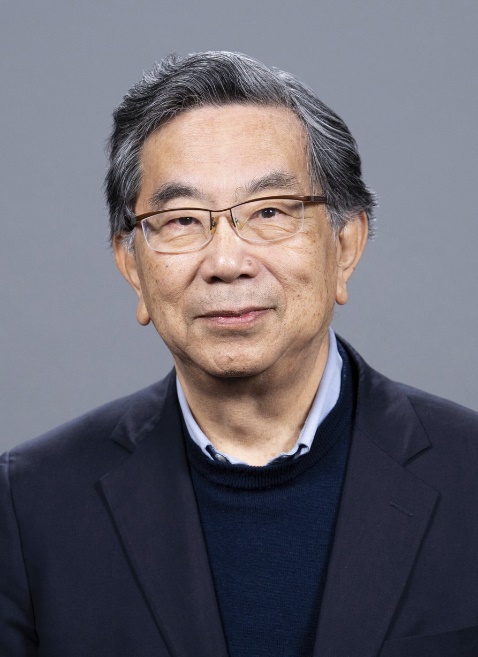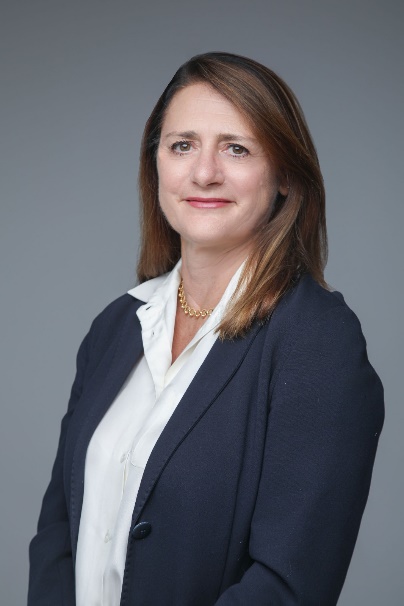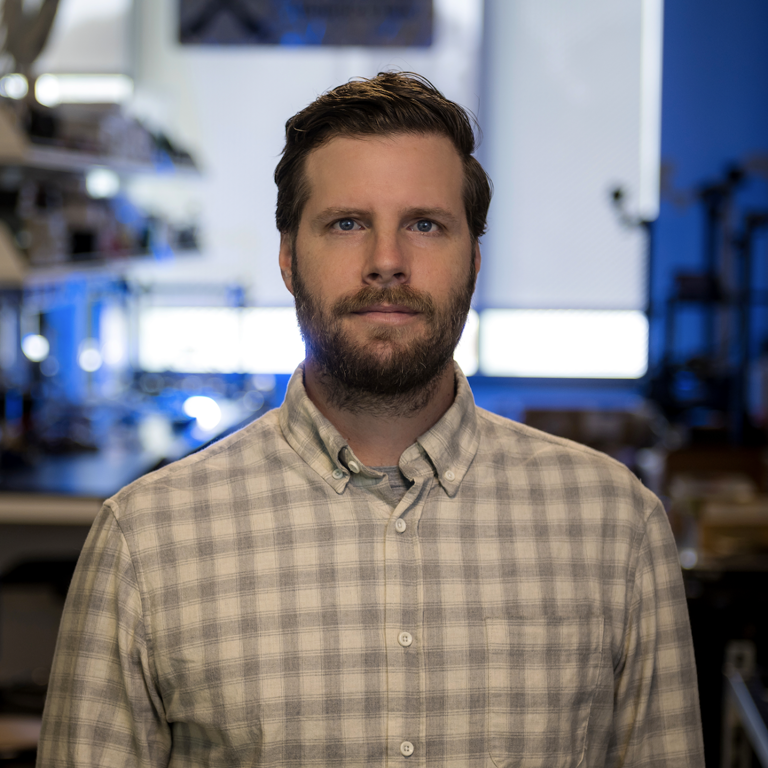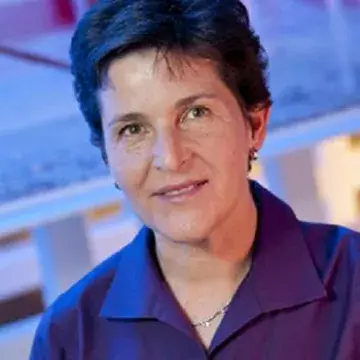Keynote Speaker

Masayoshi Tomizuka
Department of Mechanical Engineering
University of California, Berkeley, CA 94720-1740
Fukushima Institute for Research, Education and Innovation (F-REI)
Expertise and leading scientist for the topic of control theory, specializing in the integration of model-based control and machine learning for advanced mechatronic systems.
(September 23rd. Chair: —)
Keynote Talk
Intelligent, Autonomous and Swarm Control of Robots in Harsh Environments
Japan has many earthquake sources and volcanic zones, and is prone to heavy rains. Although the occurrence of disasters cannot be avoided, it should be possible to save people’s lives and prevent the damage from spreading by utilizing AI and robotics technology. Fukushima Institute of Research Education and Innovation (F-REI) conducts research on intelligent, autonomous and swarm control of robots in harsh environment. Robots include Autonomous Unmanned Aerial Vehicles (AUVs) and Autonomous Unmanned Ground Vehicles (UGVs), and AI support them as enabling technology. AUVs and AGVs have complementary strengths, and their combined use generates synergy. Autonomous AUVs and AGVs are examples of mechatronic systems and they continue to evolve as new decision making methodologies and sensor and computation technologies are introduced. F-REI’s initial research focuses on surveying disaster areas and rescue activities in collaboration with human workers, but in the future, one of our goals is to develop technology that can respond at all points during a disaster, such as evacuation guidance and reconstruction activities, in addition to rescue.
Biography
Masayoshi Tomizuka received his Ph. D. degree in Mechanical Engineering from the Massachusetts Institute of Technology in February 1974. In 1974, he joined the faculty of the Department of Mechanical Engineering at the University of California at Berkeley, where he currently holds the Cheryl and John Neerhout, Jr., Distinguished Professorship Chair and serves as Associate Dean for the Faculty in the College of Engineering. His current research interests are control theory, merging model based control and machine learning, mechatronic systems such as intelligent robots and autonomous vehicles. He served as Program Director of the Dynamic Systems and Control Program of the National Science Foundation (2002-2004). He has supervised about 150 Ph. D. students to completion. He is the recipient of the Charles Russ Richards Memorial Award (ASME, 1997), the Rufus Oldenburger Medal (ASME, 2002), the John R. Ragazzini Award (AACC, 2006), the Richard Bellman Control Heritage Award (AACC, 2018) and the Nichols Medal (IFAC, 2020). He is an honorary member of ASME, Life Fellow of IEEE and is a member of the United State National Academy of Engineering.
Plenary Speaker

Heiko Hamann
University of Konstanz
https://www.cps.uni-konstanz.de
Expertise and leading scientist for the topic of: Mobile robotics, swarm robotics, and bio-hybrid. systems
(September 23rd. Chair: Florentin Wörgötter)
We work predominantly on mobile robotics, swarm robotics, and bio-hybrid systems (living organisms coupled with technological entities).
Collective Systems: collective behavior in large-scale multi-robot systems and robot swarms.
Bio-hybrid Systems: combining living organisms, such as natural plants or humans, and technology in the form of distributed autonomous systems.
Plenary Talk
Human-Swarm Interaction and Time: Subjective Time-Perception as a Plastic Feature
A key future aspect of swarm robotics is human-swarm interaction. We look into the very specific effect of robot swarms on the operator’s subjective time perception. Our vision is to build robot swarms that autonomously shape the operator’s time perception. This will lead to swarm systems that adapt to the operator’s needs and improve their well-being, for example, by influencing their mental load. We analyze physiological data of human (swarm) operators using methods of machine learning.
Biography
Heiko Hamann is professor for cyber-physical systems at the University of Konstanz, Germany. He was a professor of swarm robotics at the University of Lübeck, Germany from 2017 until 2022. His main research interests are swarm robotics, bio-hybrid systems, evolutionary robotics, and modeling of complex systems. In his research projects, he studies bio-hybrid systems, such as using natural plants as sensors by doing phytosensing (EU-funded project WatchPlant) and forming symbiotic relationships between robots and natural plants to produce architectural artifacts and living spaces (EU-funded project flora robotica).

Kenzo Nonami
Chairman, Japan Drone Consortium
https://www.f-rei.go.jp/english/institution/department-heads.html
(September 23rd. Chair: Fumitoshi Matsuno)
His recent research interests are fully autonomous drones, namely, fully autonomous unmanned multi-rotor helicopters and VTOLs as UAVs with GPS or GPS-denied environments, advanced robotics and mechatronics.
Plenary Talk
Heterogeneous Swarm Flight by a Cerebral AI Drones
In this presentation, I will define a Cerebrum-based drone as an AI drone and provide details on the technologies. I have been serving as the convener of ISO/TC20/SC16/AG6 UAS Autonomy powered by AI technology since 2023, and this has been approved at the ISO 2024 Plenary meeting. Next, I will introduce the technical challenges of swarm flight, which can only be realized based on this AI drone, such as control systems, communication systems, collision avoidance systems, route optimization, task distribution and decision-making, and security, and then introduce actual demonstrations of rotor wing swarm flight and mixed rotor and fixed wing swarm flight using more than 20 drones.
Biography
Dr. Kenzo Nonami has been a full professor in the Department of Mechanical Engineering at Chiba University since 1994. He was in charge of Vice President of Chiba University from 2008 to 2013. Right now, Dr. Nonami is an emeritus professor at Chiba University, in 2013 he founded the Company “Autonomous Control Systems Laboratory, Ltd.” and was Chairman from 2018 to 2021. He currently holds the position of Chairman at Advanced Robotics Foundation since 2019, and a Chairman at Japan Drone Consortium which includes more than 300 companies since 2012. And is Independent Outside Director at Sodick Co., Ltd. since 2020.
Dr. Nonami received a doctorate degree in Mechanical Engineering from the University of Tokyo in 1979. He worked as an Associate Professor at Chiba University from 1988 to 1994 and as full
professor in the Department of Mechanical Engineering and Electronics from 2004. He won the NRC research fellowship at NASA (USA) in 1985 and did research on various fields like robots, unmanned small scale helicopter, Micro Air Vehicle to name a few. He is a member of Japan Society of Mechanical Engineers, Robotics Society of Japan, IEEE, ASME, etc. He has published more than 300 journal papers and seven textbooks. He has guided 36 Ph.D students. He will be taking over as Vice-President of Chiba University in April 2008. He has many awards to his credit from Japan and American Society of Mechanical Engineers.
Antonio Bicchi
University of Pisa
https://www.iit.it/people-details/-/people/antonio-bicchi
Expertise and leading scientist for the topic of: Soft actuators and soft hands.
(September 23rd. Chair: Tomas Kulvicius)
Plenary Talk
On some abstract lessons learnt from nature, and concrete applications thereof
One of the longest standing arguments at the intersection of science and technology is to what extent, and how, are artificial objects inspired by nature. Is the classical bioinspiration concept of abstract models still valid, or are data-based descriptions enabling a new type of mimicry? In this talk I will survey some examples in different domains where I had the opportunity to explore these questions, ranging from social organization of autonomus systems to variable-stiffness robot arms, and soft synergy-based hands for prosthetics and rehabilitation, and try to discuss their underlying commonalities.
Biography
Antonio Bicchi is Senior Scientist at the Italian Institute of Technology in Genoa and the Chair of Robotics at the University of Pisa. He graduated from the University of Bologna in 1988 and was a postdoc scholar at M.I.T. Artificial Intelligence lab. He teaches Robotics and Control Systems in the Department of Information Engineering (DII) of the University of Pisa. He leads the Robotics Group at the Research Center “E. Piaggio” of the University of Pisa since 1990. He is the head of the SoftRobotics Lab for Human Cooperation and Rehabilitation at IIT in Genoa. Since 2013 he serves ad Adjunct Professor at the School of Biological and Health Systems Engineering of Arizona State University.
From January, 2023, he is the Editor in Chief of the International Journal of Robotics Reserach (IJRR), the first scientific journal in Robotics. He has been the founding Editor-in-Chief of the IEEE Robotics and Automation Letters (2015-2019), which rapidly became the top Robotics journal by number of submissions. He has organized the first WorldHaptics Conference (2005), today the premier conference in the field. He is a co-founder and President of the Italian Institute of Robotics and Intelligent Machines (I-RIM)
His main research interests are in Robotics, Haptics, and Control Systems. He has published more than 500 papers on international
journals, books, and refereed conferences. His research on human and robot hands has been generoously supported by the European Research Council with an Advanced Grant in 2012, a Synergy Grant in 2019, and three Proof-of-Concept grants. He originated and is today the scientific coordinator of the JOiiNT Lab, an advanced tech transfer lab with leading-edge industries in the Kilometro Rosso Innovation District in Bergamo, Italy.
Among his students, five were finalists of the “G. Giralt Award” for Best Ph.D. thesis in Robotics. The award went to Manuel G. Catalano in 2013, to Cosimo Della Santina in 2019, and to Giuseppe B. Averta in 2020. Alessandro Altobelli and Federica Barontini won the EuroHaptics Best Ph.D. Thesis award in 2015 and 2023, respectively. The prestigious IEEE RAS Early Career Award was awarded to Arash Ajoudani in 2021 and to and Cosimo Della Santina in 2023.

Cecilia Laschi
National University of Singapore
https://cde.nus.edu.sg/me/staff/cecilia-laschi-2
Expertise and leading scientist for the topic of: Soft Robotics.
(September 24rd. Chair: Koichi Suzumori)
Plenary Talk
Lessons from nature for soft robotics
Observing living beings means observing complex systems, in complex dynamic environments. Obtaining similar behaviours has been challenging roboticists since long. What we can learn from nature is how to simplify perception-action loops, without simplifying the systems, the environment, or the task, but taking advantage of their interplay. According to this embodied intelligence paradigm, control is simplified and efficiency is increased, as we see in a few examples of octopus-inspired soft robots. Octopus locomotion uses soft legs that shorten and elongate to walk underwater, avoiding the need to move rigid limbs against water drag. Octopus arm movements also reduce water drag by avoiding rigid translations and instead leveraging the arm softness and extreme deformability to unfold in water. Among other simplifying principles, those strategies can help roboticist develop effective and efficient robots, for marine operations, and for many more application fields.
Biography
Cecilia Laschi is best-known for her research in soft robotics, an area that she pioneered internationally. She investigates how to build robots with soft materials, studying the octopus as a model for robotics. She explores marine applications of soft robots and their use in the biomedical field, with a focus on eldercare. She has worked in humanoid and neuro-robotics, applying brain models to humanoid robots.
Cecilia Laschi is Provost’s Chair Professor at the National University of Singapore and the Director of the Advanced Robotics Centre. She is a Professor on leave from the BioRobotics Institute of Scuola Superiore Sant’Anna, Pisa, Italy.
She is IEEE Fellow and AAAS member. She is Editor-in-Chief of Bioinspiration & Biomimetics and Specialty Chief Editor of Soft Robotics in Frontiers in Robotics & AI. She is Editorial Board member of Science Robotics, IEEE Robotics & Automation Letters, International Journal of Robotics Research, and the Intelligent Robotics and Autonomous Agents (IRAA) Series of MIT Press.
She founded the IEEE-RAS International Conference on Soft Robotics (RoboSoft) in 2018. She co-founded the start-up company RoboTech, in edutainment robotics.
Dongheui Lee
University of Technology in Vienna
https://www.tuwien.at/etit/ict/asl/team/dongheui-lee
Control, robotics and dynamical systems. Bioinspired design and fluids.
(September 24rd. Chair: Tommy Gravdahl)
Plenary Talk
Human-Centric Approaches for Robot Learning and Interaction with Human
The robotics research community has shown increased interest in robot skill learning in the past decade. Robot learning from imitating successful human demonstrations provides an efficient way to learn new skills and an intuitive way to program a robot, which can reduce the time and cost of programming the robot. Beyond learning simple movement primitives, the learning from demonstrations can be utilized further in the research direction of continual learning and natural human-robot interaction. In this talk, I will review some of the background, motivations, and state of the art in the field of robot learning from demonstrations. The presented applications range from complex task learning to human assistance. I will introduce some of the recent progress that we made in our lab for bridging the low-level skill learning and task knowledge.
Biography
Dongheui Lee (이동희) is Full Professor of Autonomous Systems at Institute of Computer Technology, Faculty of Electrical Engineering and Information Technology, TU Wien. She has been also leading a Human-centered assistive robotics group at the German Aerospace Center (DLR), since 2017. Prior, she was Associate Professor of Human-centered Assistive Robotics at the TUM Department of Electrical and Computer Engineering, Assistant Professor of Dynamic Human Robot Interaction at TUM, Project Assistant Professor at the University of Tokyo (2007-2009), and a research scientist at the Korea Institute of Science and Technology (KIST) (2001-2004). She obtained a PhD degree from the department of Mechano-Informatics, University of Tokyo, Japan in 2007. She was awarded a Carl von Linde Fellowship at the TUM Institute for Advanced Study (2011) and a Helmholtz professorship prize (2015). She has served as Senior Editor and a founding member of IEEE Robotics and Automation Letters (RA-L) and Associate Editor for the IEEE Transactions on Robotics. Her research interests include human motion understanding, human robot interaction, machine learning in robotics, and assistive robotics.
Professional Career:
- Since April 2022 – Full Professor, TU Wien, Austria
- 2017 to March 2022 – Associate Professor (W3), Department of Electrical and Computer Engineering, Technical University of Munich (TUM), Germany
- Since 2017 – Group Leader, Institute of Robotics and Mechatronics, German Aerospace Center (DLR), Germany
- 2009 to 2017 – Assistant Professor, Department of Electrical and Computer Engineering, Technical University of Munich (TUM), Germany
- 2007 to 2009 – Project Assistant Professor, Department of Mechano-Informatics, The University of Tokyo, Japan
- 2007 – Postdoctoral Researcher, Department of Mechano-Informatics, The University of Tokyo, Japan
- 2007 – Ph.D. Information Science and Technology, Department of Mechano-Informatics, The University of Tokyo, Japan – “Statistical Mimesis from Partial Observation and its Application to Humanoid Robots”
- 2001 to 2004 – Research Scientist, KIST (Korea Institute of Science and Technology), Korea

Nicholas Gravish
University of California
https://matsci.ucsd.edu/faculty/nicholas-gravish
Transfer principles of biological systems towards the design and control of mobile robots
(September 24rd. Chair: Minija Tamosiunaite)
Plenary Talk
The symbiotic mutualism of robotics and biology
Roboticists have long looked to biology for inspiration in robot design, locomotion, and control. More recently, biologists have started looking to robotics build models of complex living systems and generate/test biological hypotheses. What’s emerged is a mutually beneficial relationship: biological insights can help build better robots, and robots can help better understand complex biological processes. In this talk I will give an overview how bio-inspired robotics, and robotics-inspired biology emerged. I will provide concrete examples of this mutualism, drawing on work from my research career in physics, biology, and robotics labs, including projects on insect flight, granular locomotion, and collective behavior. This talk will conclude with an outlook for how roboticists and biologists can continue to build collaborations and interactions for the mutual benefit of science and engineering
Biography
Research Focus
Robotics, robotic and biological systems, biomechanics, locomotion, manufacturing
Research Summary
Gravish’s research focuses on better understanding the challenges of movement and manipulation in micro-scale robotic and biological systems. Current understanding of locomotion and manipulation in micro-scale systems lags behind our ability to create devices at these scales (i.e. microrobots). We also lack an intuitive understanding of the strategies animals use for movement and manipulation at these scales. To bridge this knowledge gap between manufacturing and movement, Gravish studies high-speed, robust, and agile locomotion in microscale biological systems such as flying and running insects and looks for the principles of dynamic locomotion at the micro-scale. In addition, Gravish manufactures at-scale microrobots to test locomotion and manipulation hypotheses. His research takes an integrative approach, through quantitative biology experiments and robotics manufacturing and experiments, based on the mechanics driving the interaction between the animals and their environment when they move. He aims to discover principles for robust movement in complex environments with limited sensing and control. Gravish’s overarching goal is to expand our knowledge of movement and manipulation capabilities in micro-scale biological and robotic systems through novel manufacturing and experiments.
Bio
Nick Gravish is an associate professor in the Mechanical & Aerospace Engineering department and a faculty member in the Contextual Robotics Institute. Dr. Gravish received his PhD from Georgia Tech in 2013, and was postdoctoral fellow at Harvard from 2013-2016 supported by a James S. McDonnell fellowship in complex systems science. His research focuses on bio-inspiration, biomechanics, and robotics, towards the development of new locomotion systems.

Saravana Prashanth Murali Babu
Assistant Professor, SDU Soft Robotics, SDU Biorobotics,
The Maersk Mc-Kinney Møller Institute, University of Southern Denmark
https://www.softrobotics.dk/
https://portal.findresearcher.sdu.dk/en/persons/saravana-prashanth-murali-babu
https://saravanaprashanth.myportfolio.com/
Expertise and leading scientist for the topic of: Modular soft robotics
(September 24rd. Chair: Poramate Manoonpong)
Plenary Talk
From Nature to Robots: Exploring Modular Locomotion and Evolution
Dynamic locomotion in nature is remarkably adaptable, enabling animals to modify their body structures and sensing capabilities based on environmental interactions. A common biological strategy underpinning this adaptability involves modular muscular segments that can contract, extend, and coordinate complex movements. Inspired by these principles, robotic systems utilizing modular design have the potential to replicate and extend these versatile natural behaviors through structural reconfiguration and functional adaptation.
In this talk, I will explore how modularity enables robots to emulate biological locomotion by dynamically adopting multiple bioinspired gaits within a unified platform. Specifically, I will present our work demonstrating how a single modular robotic system can seamlessly transition between distinct locomotion patterns exhibited by both limbless and limbed crawling organisms, such as earthworms, snails, and turtles. Furthermore, I will discuss how robotics not only draws inspiration from biology but also provides new methods to study biological behaviors, revealing novel insights into natural actuation, sensing mechanisms, and control strategies. The underlying motivation for this work is to use biologically accurate robotic tools to experimentally validate evolutionary hypotheses. Could evolutionary history hold hidden information, lost when an animal becomes extinct? By designing robots that closely replicate biological traits of extinct animals, can we uncover these lost evolutionary insights? This interplay between robotics and biology not only promises technological innovation but also offers the potential to profoundly expand our understanding of natural locomotion and evolutionary biology.
Biography
Research Focus
Locomotion, biorobotics, soft robots, modular robot design, sustainable manufacturing, robophysics
Bio
Saravana Prashanth Murali Babu is an Assistant Professor at the University of Southern Denmark (SDU), where he leads his “Sustainable Soft Robotics” research at SDU Soft Robotics. His work focuses on developing sustainable, bioinspired soft robots to tackle environmental challenges through accessible and innovative approaches in design, fabrication, control, and learning. He holds a PhD in BioRobotics (cum laude) from the BioRobotics Institute, Scuola Superiore Sant’Anna, Italy under the supervision of Dr. Barbara Mazzolai and Prof. Cecilia Laschi.
Saravana’s contributions in advancing soft robotics, particularly in bioinspired locomotion, modular design, and the development of eco-friendly, biodegradable robots for multi-terrain exploration. His previous works on integrated actuator-sensor solution with intrinsic proprioception and tunable stiffness, enabling soft robots to perform dynamic and adaptive tasks. His research draws inspiration from the dynamic movements of small animals, particularly invertebrates, using them as models for soft robotics. To explore these biological motions, he develops robots that mimic similar behaviors, offering insights into unresolved biological questions and hypotheses. This approach aims to advance biological studies without harming animals, using soft robots as experimental models. From an engineering perspective, Saravana adopts modular design as his robot platform, enabling the integration of multiple locomotion principles into a single robot. Along with this perspective, he aims to contribute to the broader goals of sustainable development and climate action. By bridging biological inspiration with engineering innovation, his work drives robotics toward sustainability and the creation of eco-conscious technologies. Saravana envisions establishing a high-standard platform for biodegradable robotics, advancing technologies that align with and support planetary health.

Deborah Gordon
Stanford University
https://biology.stanford.edu/people/deborah-m-gordon
Expertise and leading scientist for the topic of: Ant colonies
(September 25th. Chair: Fumitoshi Matsuno)
Plenary Talk
The ecology of collective behavior
Collective behavior operates as a distributed system without central control, using networks of interactions that in the aggregate allow the system to adjust to the current situation. Collective behavior is extremely diverse. I will suggest hypotheses for how ecology shapes the evolution of collective behavior so that the dynamics of behavior, in rate, feedback regime and modularity of interaction networks, fits the dynamics of the environment. As examples I will discuss the regulation of foraging behavior in two ant species, harvester ants in the desert and turtle ants in the tropical forest. These examples point to general trends in how collective behavior evolves in particular environments to respond to changing conditions.
Biography
Deborah M. Gordon is a Professor in the Department of Biology at Stanford University. She studies how ant colonies work without central control using networks of simple interactions, and how these networks evolve in relation to changing environments. She received her PhD from Duke University, then joined the Harvard Society of Fellows, and did postdoctoral research at Oxford and the University of London before joining the Stanford faculty in 1991. Projects include a long-term study of a population of harvester ant colonies in Arizona, studies of the invasive Argentine ant in northern California, arboreal ant trail networks and ant-plant mutualisms in Central America.

Sabine Hauert
University of Bristol
https://hauertlab.com/people
Expertise and leading scientist for the topic of: Robotic swarms.
(September 25th. Chair: Shinya Aoi)
Plenary Talk
From Nano to Macro: Building Trustworthy Swarms for People
Building on 20 years of progress, swarm robotics is now ready to enable out-of-the-box solutions in real-world environments that adapt, scale, and are robust. To enable this, we propose a shift towards trustworthy swarms with emergent properties that are easy to design, monitor, control, and validate by humans. At the nano scale, these swarms can interface with the body, enabling applications in cancer treatment, wound healing or tissue engineering. At the macro scale, future swarms will leverage AI, integrate advanced local perception, and share information not only locally but also quasi-globally. Ultimately, we envision a future where specialised robots operate with shared situational awareness, coexisting and coordinating seamlessly in environments such as construction sites, farms, logistics hubs, and natural ecosystems. The goal is to foster an ecosystem where next-generation robots collaborate with each other—and with humans—at scale.
Biography
Sabine Hauert is Professor of Swarm Engineering at University of Bristol. She leads a team of 20 researchers working on making swarms for people, and across scales, from nanorobots for cancer treatment, to larger robots for environmental monitoring, or logistics (https://hauertlab.com/). Before joining the University of Bristol, Sabine engineered swarms of nanoparticles for cancer treatment at MIT, and deployed swarms of flying robots at EPFL. She’s PI or Co-I on more than 40M GBP in grant funding and has served on national and international committees, including the UK Robotics Growth Partnership, the Royal Society Working Group on Machine Learning, and several IEEE boards. She is on the board of directors of the Open Source Robotics Foundation and is Executive Trustee of non-profits robohub.org and aihub.org, which connect the robotics and AI communities to the public.
